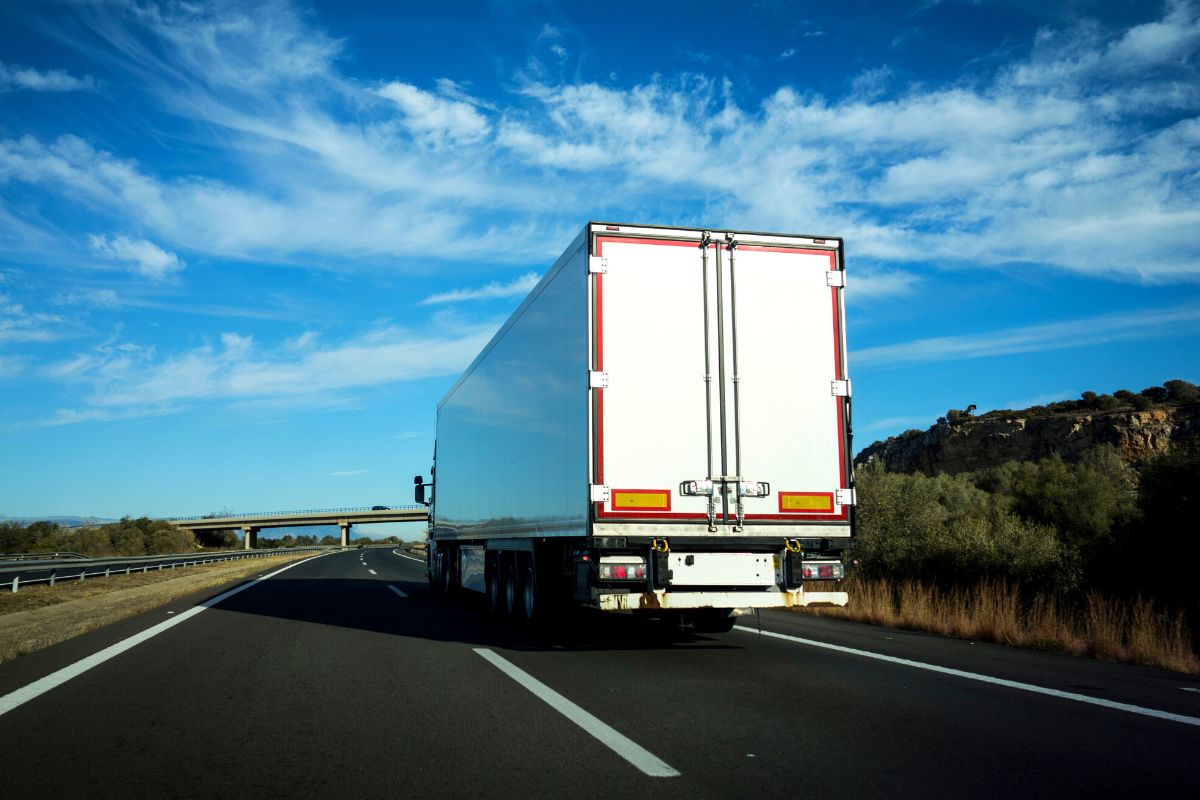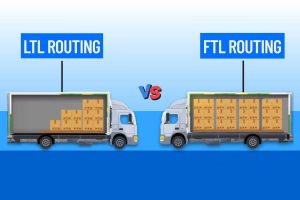The Indian logistics industry is one of the fastest-growing sectors in the country. It is estimated to reach a market size of $ 380 billion by 2025, driven by the growth of e-commerce and the increasing demand for efficient and optimized supply chain management. However, the sector is also facing several challenges, especially in the trucking industry.
On that note, we will explore the challenges and opportunities in Indian logistics in 2023, specifically in the trucking industry, and discuss some steps that can be taken to address these challenges.
Challenges in the Indian Trucking Industry

Inefficient infrastructure:
One of the biggest challenges facing the Indian trucking industry is the lack of efficient infrastructure. The roads in India are not well-maintained, and many of them are not suitable for heavy vehicles. This leads to higher fuel consumption, longer transit times, and higher transportation costs.
Lack of standardisation:
The trucking industry in India is highly fragmented and lacks standardization. There are over 14 million trucks in India, but most of them are small and operate as individual units. This leads to inconsistencies in terms of quality, reliability, and pricing.
High operational costs:
The operational costs of trucking in India are high due to several factors, such as high fuel prices, toll charges, and taxes. This puts pressure on the profit margins of trucking companies, making it difficult for them to operate efficiently.
Lack of skilled manpower:
It also suffers from a lack of skilled manpower. Many truck drivers in India are not properly trained, and they often lack basic skills such as reading and writing. This leads to a high rate of accidents and reduces the efficiency of the transportation system.
Government regulations:
The Indian trucking industry is subject to a wide range of government regulations, including permits, taxes, and tolls. These regulations often create delays and inefficiencies, leading to higher operating costs for trucking companies.
Fuel price volatility:
Fuel prices in India are highly volatile, leading to uncertainty in the operating costs for trucking companies. This volatility impacts the profitability of trucking companies and can result in financial instability.
Last-mile delivery challenges:
The last-mile delivery infrastructure in India is often inadequate, with limited access, narrow roads, and congested streets, making it challenging for trucks to reach their final destination. This results in higher delivery costs, longer delivery times, and lower customer satisfaction.
Overall, these challenges highlight the need for significant investments in infrastructure, technology adoption, driver training, and policy reforms to help the Indian trucking industry overcome its challenges and achieve sustainable growth. Let’s now explore some of the opportunities in the Indian trucking industry.
Opportunities in the Indian Trucking Industry
The Indian trucking industry presents several opportunities for growth and expansion. Here are some of the key opportunities:
Growth of e-commerce:
The growth of e-commerce in India has created new opportunities for the trucking industry. E-commerce companies require efficient and reliable logistics partners to ensure the timely delivery of goods. This has led to the emergence of new logistics companies that specialize in e-commerce logistics.
Implementation of GST:
The implementation of Goods and Services Tax (GST) has streamlined the tax system in India, reducing the number of taxes that logistics companies have to pay. This has led to a reduction in operational costs for logistics companies, making it easier for them to operate efficiently.
Increasing demand for cold chain logistics:
The demand for cold chain logistics is increasing in India due to the growth of the food and pharmaceutical industries. This has led to the emergence of new logistics companies that specialize in cold chain logistics, creating new opportunities for the trucking industry.
Logistics parks:
The Indian government has initiated plans to develop logistics parks across the country, which will provide world-class infrastructure for logistics companies. This presents an opportunity for trucking companies to expand their operations and improve efficiency by leveraging these logistics parks.
Technology adoption:
With the growing adoption of technology in the trucking industry, there are several opportunities for trucking companies to leverage technology to improve efficiency, safety, and customer service. This includes the use of GPS, fleet management systems, and telematics.
Rural market:
The Indian trucking industry has traditionally focused on serving urban and semi-urban markets, but there is significant untapped potential in rural areas. With the government’s focus on rural development, there is a growing demand for transportation services in rural areas, which presents an opportunity for trucking companies to expand their operations.
Green logistics:
With growing concerns about the environment, there is an increasing demand for sustainable transportation solutions. This presents an opportunity for trucking companies to adopt green logistics practices, such as using alternative fuels, optimizing routes to reduce emissions, and adopting eco-friendly technologies.
Further, these opportunities present significant growth potential for the Indian trucking industry. And by adopting new technologies, expanding into new markets, and focusing on sustainability, trucking companies can capitalize on these opportunities and achieve long-term success.
Steps to Address the Challenges in the Indian Trucking Industry
Here are some steps that can be taken to address the challenges in the Indian trucking industry:
Infrastructure development:
The Indian government should focus on improving the infrastructure for the trucking industry, including the development of better roads and highways. This will reduce transportation costs and improve the efficiency of the logistics system.
Standardization:
The Indian trucking industry needs to be standardized to ensure consistency in terms of quality, reliability, and pricing. This can be achieved by setting up industry standards and regulations, as well as implementing technological solutions.
Skill development:
It needs to focus on skill development to ensure that truck drivers are properly trained and have the necessary skills to operate efficiently and safely. This can be achieved through training programs and the development of certification programs for truck drivers.
Adoption of technology:
It needs to adopt technological solutions to improve efficiency and reduce costs. This can include the use of GPS tracking and real-time monitoring, as well as the adoption of automation solutions such as autonomous trucks.
Simplify regulations:
The government can simplify regulations, such as permits, taxes, and tolls, to reduce delays and inefficiencies. This will help reduce operating costs for trucking companies and improve efficiency.
Hedge against fuel price volatility:
Trucking companies can hedge against fuel price volatility by adopting alternative fuels, optimizing routes, and adopting fuel-efficient technologies. This will help reduce the impact of fuel price fluctuations on operating costs.
Improve collaboration:
The industry can improve collaboration between stakeholders, such as trucking companies, shippers, and logistics providers, to improve the supply chain. This will help improve efficiency, reduce costs, and improve customer service.
By taking these steps, the Indian trucking industry can overcome its challenges and achieve sustainable growth. Furthermore, it will require collaboration between the government, industry, and other stakeholders to address these challenges and unlock the full potential of the industry.












